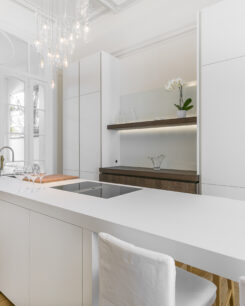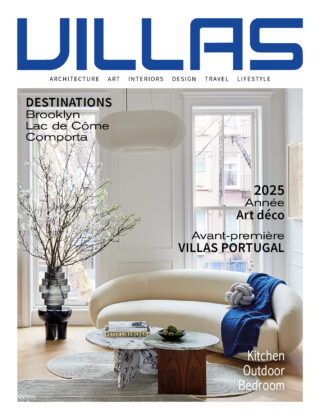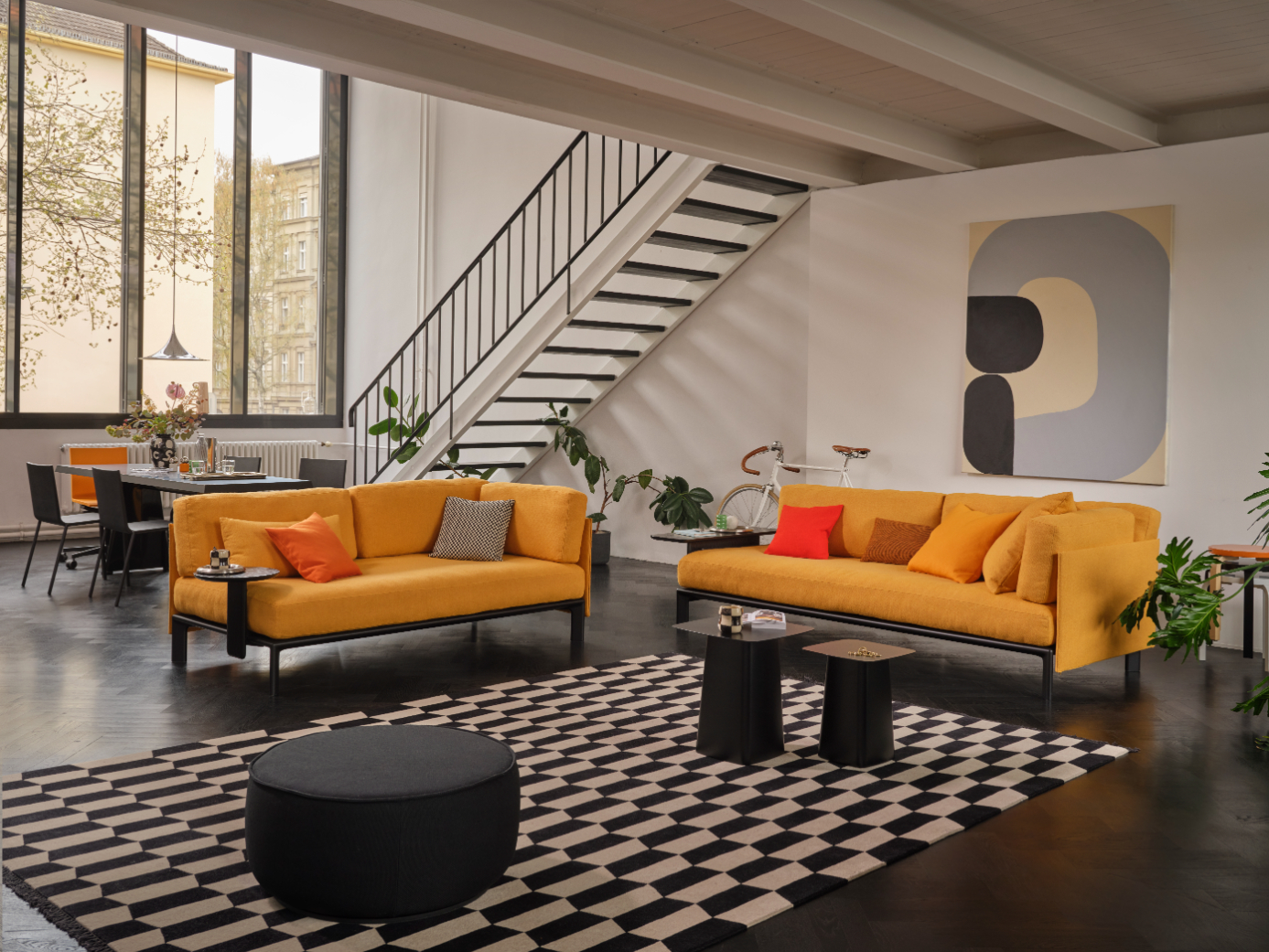
Once a home is well-furnished, it tends to stay that way for many years—even as technological and social changes have long since transformed daily life. For example, in the last few decades, shared activities inside the home—and the furnishing of the living room—were centered around the television. Today, however, people curate their own entertainment on mobile devices, and more than ever, homes are used in various ways, which became particularly evident during the pandemic.
Reflecting these new realities in furniture and product design poses an interesting challenge for designers, architects, and furniture manufacturers. Adaptability is one solution: homes should be easy to transform based on activities, whether it’s movie nights and gaming, exercising, relaxing, sleeping, reading, entertaining, and more. Ideally, furniture should be light, mobile, and easily adaptable. Lifestyles are also changing, with the traditional family model—where people marry, buy a house, start a family, and retire—becoming less common. Instead, today’s families are mobile, moving homes and changing in composition, with blended families becoming more common.
Buying a new sofa is a significant investment and often a difficult process; the shape and size need to fit the current living room. “What if the purchasing decision could be simplified with a product so customizable that it feels like a collection of possibilities rather than a mandatory purchase?” With this question in mind, Vitra reached out to designers Stefano Panterotto and Alexis Tourron.
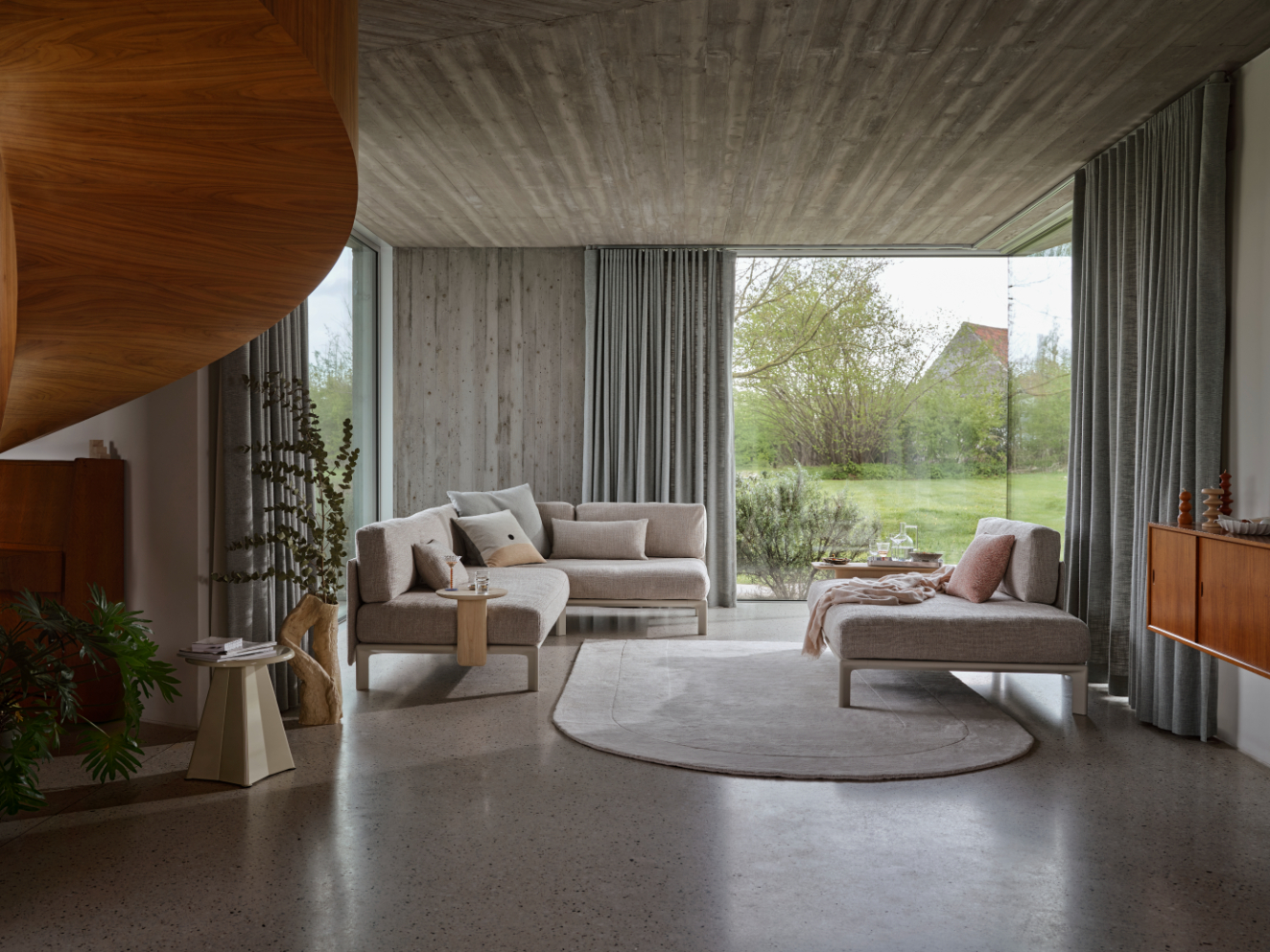
The result is the Anagram Sofa, a system made up of modules and elements that can be quickly adapted to immediate needs as well as life’s bigger changes. As Panter & Tourron explain: “A sofa is a key character in the home and often one of the largest objects. It’s crucial that it evolves with you; otherwise, you won’t enjoy a long life together.” The Anagram platform modules are designed as islands that can be combined with others on all four sides and equipped with elements like backrests, side panels, and removable tables. With a click mechanism, these elements can be freely positioned anywhere on the platform and rearranged within seconds. This allows for countless configurations and easy layout changes—from a classic L-shaped sofa or a cozy reading nook to a practical guest sleeping area, from a flat, central island gathering space to a formal waiting area or a curvy S-shaped setup ideal for conversation, as well as comfortable isolation, and many more options.
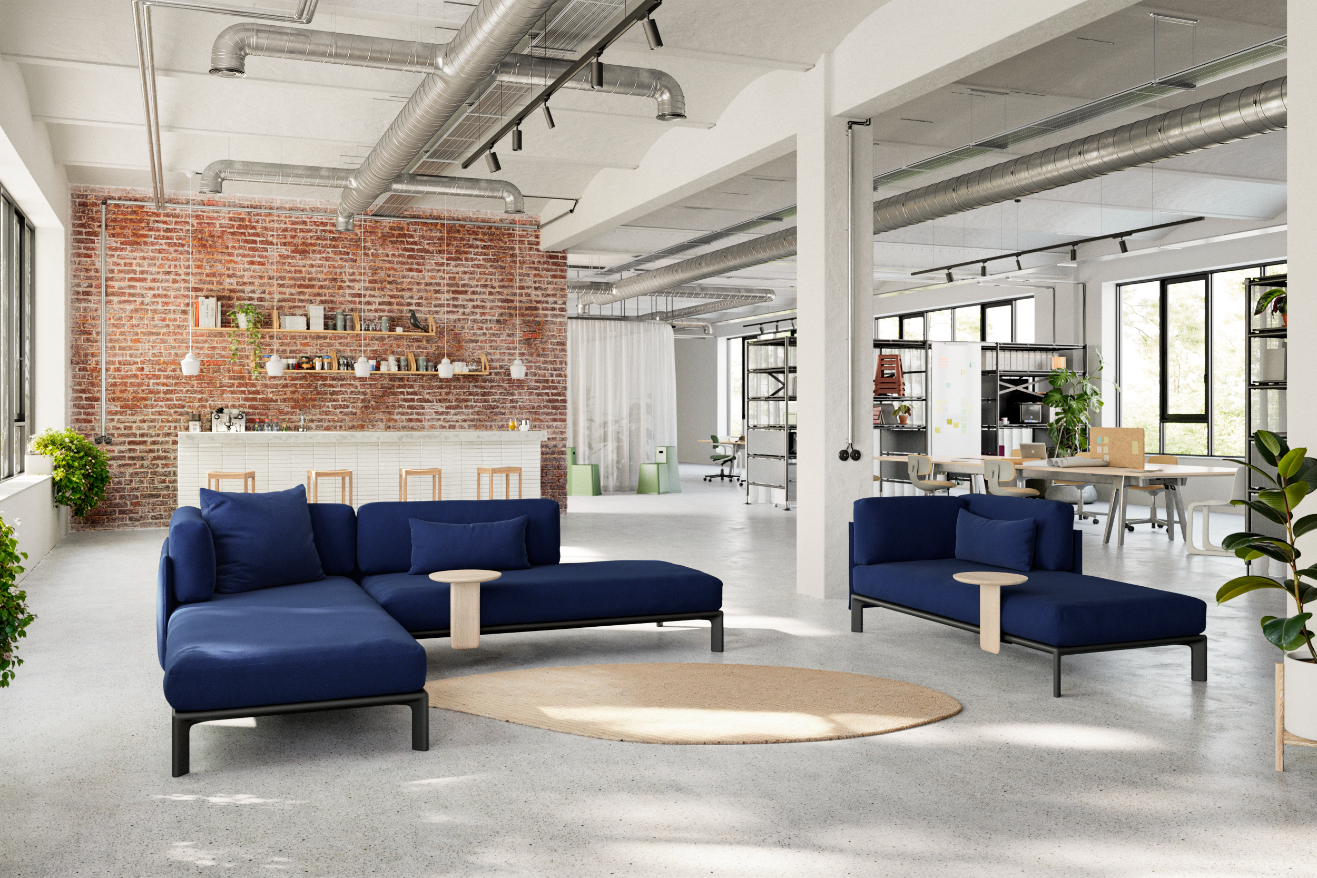
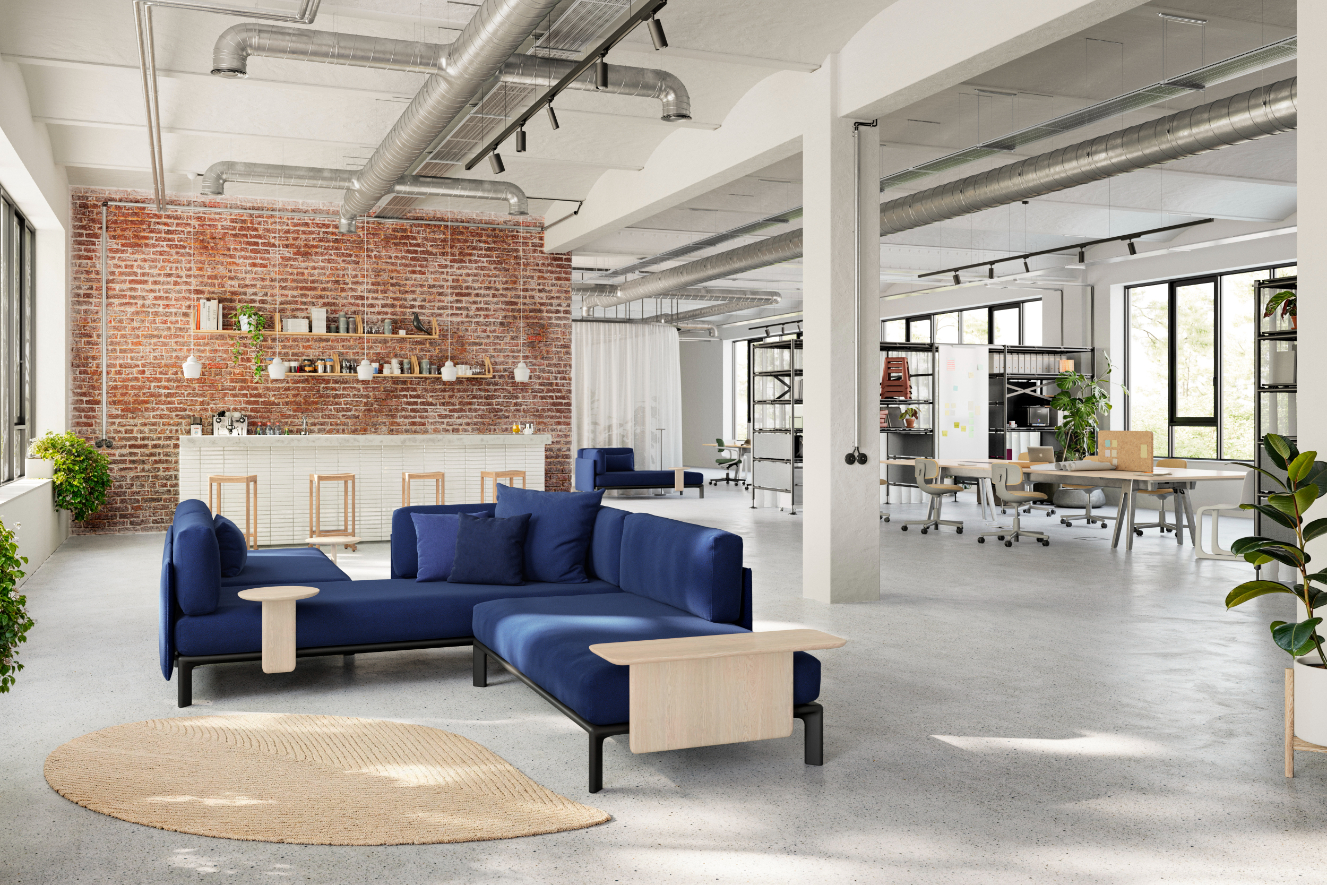
Thanks to these features, the Anagram Sofa is the perfect tool for modern companies with constantly evolving office environments. Here, a sofa—used for spontaneous meetings, quiet retreats, etc.—can only remain relevant if it is as dynamic as its environment and can easily adapt to changing circumstances.
“A typical sofa resembles a highly fossilized being made from a wide variety of materials glued together, including animal-derived substances and large amounts of plastic,” explain Panter & Tourron. This contradicts Vitra’s development guidelines, which emphasize material separability, modularity, ease of disassembly, repairability, design simplicity, and more. Another point was also clear for the designers: the product had to be vegan. Anagram meets all these requirements: the soft, inviting cushions are filled with 100% recycled PET fibers and contain no animal-based padding. The fabric covers are easy to remove for cleaning or replacement. The sturdy yet lightweight frame is made of 80% recycled aluminum, and like all components of the Anagram Sofa, is separate from the other materials—nothing is glued, laminated, or foamed. This means that every component, made from recycled materials wherever possible, can be easily separated at the product’s end of life and recycled again.
Design can respond to social and cultural changes. The Bauhaus movement in Germany, for example, addressed this concern: it was a reaction to late Victorian-era pandemics and dirty industrialized cities, aiming to create a fresh, bright, and clean new reality. Anagram is the sofa solution that smartly embodies today’s changing lifestyles. And it does so with the comfort, engineering, functionality, and aesthetic for which all Vitra products are known.

